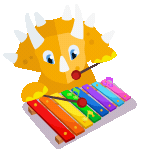Hebrew for Children: Easy Methods to Make Learning Fun
Learning a new language like Hebrew can be a rewarding experience for children, especially when it’s presented in a playful, motivating, and engaging way. Whether you’re teaching Hebrew at home or supplementing classroom lessons, here are practical strategies you can use to make Hebrew learning both fun and effective.
Spark Motivation Through Fun and Surprise
Motivation is the key to language learning success. Fortunately, boosting motivation in children is easier than it seems:
Offer Simple Rewards: Encourage your child to learn new Hebrew words by offering small rewards such as a favorite snack, stickers, or a visit to a Jewish bakery or museum.
Use Surprises: For younger children, spontaneous surprises—like a Hebrew song popping up during playtime or a peekaboo game using Hebrew words—can help keep their attention high.
Make it Fun: Play classic games like hide and seek, counting in Hebrew, or using a board game adapted with Hebrew vocabulary. The goal is to associate Hebrew with play, not work.
Keep Lessons Short and Enjoyable
Children, especially those under age 10, can lose interest quickly if the content feels overwhelming. Break learning down into small chunks:
- Introduce only a few Hebrew words at a time
- Use repetition through different formats (games, songs, visuals)
- Focus on confidence-building rather than memorization
Create Opportunities for Practice
Hebrew learning sticks best when children get to use it regularly:
Daily Mini-Quizzes: If you speak Hebrew, ask your child questions in Hebrew during the day. If not, show an object and ask “Do you know what this is in Hebrew?” or play a matching game.
Drawing and Labeling: Ask children to draw objects and label them with Hebrew names. You can even say the name aloud and have them illustrate it.
Native Speaker Interaction: Help your child interact with native speakers at Hebrew schools, Jewish cultural centers, or Synagogues. Even simple greetings can build confidence.
Use Visual and Audio Tools
Flashcards: Create or purchase Hebrew flashcards to strengthen visual associations. Dinolingo offers Hebrew flashcards designed for children, making review time feel like playtime.
Songs and Cartoons: Hebrew music and cartoons are especially effective. Play songs in the background while at home or in the car. Children will pick up rhythm, pronunciation, and new words without even realizing it.
Storytime Fun: Even if your child is a beginner, mix Hebrew words into your storytime. As they improve, introduce short Hebrew storybooks and fairy tales.
Bring Language to Life
Cultural Visits: Go on mini field trips to Hebrew-speaking spaces: a Jewish grocery store, a Hebrew school, or even a family friend’s house where Hebrew is spoken.
Hebrew Toys and Posters: Decorate your child’s space with Hebrew alphabet posters, fun puzzles, or educational toys featuring Hebrew letters or words.
Peer Learning: Arrange playdates or group sessions with other children learning Hebrew. Practicing with peers can make learning feel like a social adventure.
Make Hebrew Learning a Daily Habit
One of the easiest ways to ensure steady progress is to integrate Hebrew into your child’s routine:
- Watch Dinolingo Hebrew videos regularly
- Play online Hebrew games from Dinolingo
- Listen to Hebrew songs during meals or car rides
- Use flashcards and posters for 5–10 minutes daily
Final Thoughts
The key to helping your child succeed in Hebrew is consistency, positivity, and play. With tools like Dinolingo’s online games, videos, flashcards, and songs, you can create a joyful learning environment that supports their bilingual journey. Learning Hebrew doesn’t have to feel like schoolwork—it can be part of your everyday fun together.
Alternative Titles You Could Use:
- Raising Bilingual Kids: How to Make Hebrew Easy and Fun
- 10 Creative Ways to Teach Your Child Hebrew at Home
- Play, Practice, and Speak: A Parent’s Guide to Hebrew for Kids
- How to Inspire Your Child to Love Hebrew
- From Flashcards to Field Trips: Making Hebrew a Part of Daily Life
Start Learning a New Language Today!
Best Language App for Kids.
7-day free trial. Then only $19/month. Cancel anytime.
